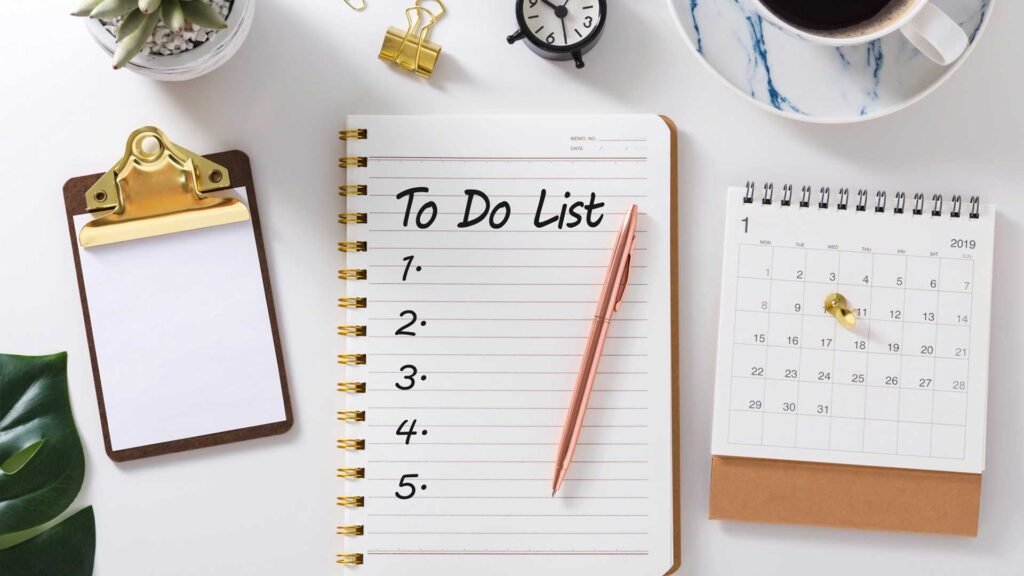Stress may be reduced by following a relaxing sleep schedule, practicing restorative yoga, and spending time with family and friends. However, this isn’t always possible. A sure-fire way to do it comes with missing a trip, receiving a sassy email from a colleague, or having your dishwasher go down suddenly. You know how it feels when your heart begins to beat, your hands start to sweat, and you feel completely overwhelmed.
How can you regain your sense of normalcy as soon as possible?
Melanie Warg, a certified marital and family therapist and therapy lead at FlushCare, a virtual health platform located in San Francisco, says, “Stress management may be crucial to help you handle stress in a healthy manner.” It’s important to identify your feelings and use coping mechanisms. Otherwise, stress can become chronic, harming your health and taking a toll on your body both physically and mentally, according to Dowd. It can cause symptoms like low energy and headaches, as well as contribute to more serious conditions like autoimmune diseases, diabetes, heart disease, high blood pressure, and obesity. Here are five easy ways that take five minutes (or less) to help you break the stress cycle in the present so you can calm down, refocus, and go about your day.
Take a few deep breaths in and out

“The breath and the body are inextricably linked,” explains Michelle Gomez, MD, Ph.D., an associate at
Massachusetts General Hospital’s Benson-Henry Institute for Mind-Body Medicine. According to the American Pulse Association, when you’re anxious, your breathing may speed up, raising blood pressure and heart rate. “However, when your breathing is calm and measured, your body relaxes as well,” she explains. “I’ve witnessed people break free from panic episodes by changing their mental state using diaphragmatic breathing.” Try the Cleveland Clinic’s fast diaphragmatic breathing technique: Relax your shoulders, head, and neck by sitting comfortably on a chair with your knees bent, and your shoulders, head, and neck relaxed. One hand should be on your tummy and the other on your chest.
Slowly inhale through your nose, allowing your tummy to slide out against your hand. Keep your hand on your chest as still as possible. Exhale via pursed lips, contracting your core muscles and allowing them to sink inward as you push the air out. Keep your hand on your upper chest as still as possible. “Pursed-lip breathing may help you slow down your breath and get more air into your lungs, particularly if you’re having trouble breathing due to stress,” explains Kelley Green, a mindfulness coach in Brooklyn.
Take a walk outside
According to Holly Schiff, PsyD, a clinical psychologist at Family Services of Connecticut, another quick approach to de-stress is to go outside. “Getting out in nature is quite beneficial,” she explains. This is supported by research. People who just glanced at photos of trees reported feeling less worried, according to research published in the journal Environment and Behavior in September 2014. This operates in a couple of different ways. According to a paper published in Frontiers in Psychology in October 2014, natural settings may instantly attract one’s attention while evoking emotions of pleasure. According to the University of Minnesota, people are drawn by nature, and being engrossed in the great outdoors may help you forget about whatever is bugging you.
Make a To-Do List

Having a lot on their plate (particularly if they’re under time constraints) might put folks into a stress and anxiety spiral. According to Queensland Health, writing down everything on your plate might assist in these situations. “Getting your to-dos off your mind and into paper may be quite beneficial for people,” Dr. Dingo explains. It may help you prioritize and concentrate on the tasks at hand, rather than worrying that something will fall through the gaps.
Make a meditation playlist on your phone
According to the Mayo Clinic, meditation may help you achieve a sense of quiet, serenity, and balance, which is particularly beneficial when you’re feeling anything but peaceful. The beauty of meditation is that you may use it wherever you are. A guided meditation will help you focus your attention away from the anxious jumble of ideas in your brain if you’re just starting started. Consider getting a mobile app. Calm and Headspace, as well as the YouTube channel Great Meditation, are recommended by Green. “These are all excellent exercises for improving your practice, particularly if you’re new to it,” she explains. College students used the Calm app in a randomized, controlled experiment published in JMIR mHealth uHealth in June 2019. After eight weeks of utilizing, it for 38 minutes each week, the students reported lower stress levels (a little more than five minutes per day). According to the American Heart Association, meditation might help you relax and gain perspective. Maybe you’ll come to the realization that the item that sent you sliding wasn’t such a huge deal after all.
Play
When stress makes you grumpy, embrace your inner kid and play with a fidget spinner or stress ball, recommends Queensland Health. A good doze of a couple of strong squeezes may disrupt a stressful train of thinking, and the same can be said with a fidget spinner. “Anything that diverts your attention and redirects your concentration might help you relax,” says Alkaline Yagnik, MD, a Los Angeles-based internal medicine and integrative medicine specialist. “These provide a welcome reprieve after a stressful day.”





